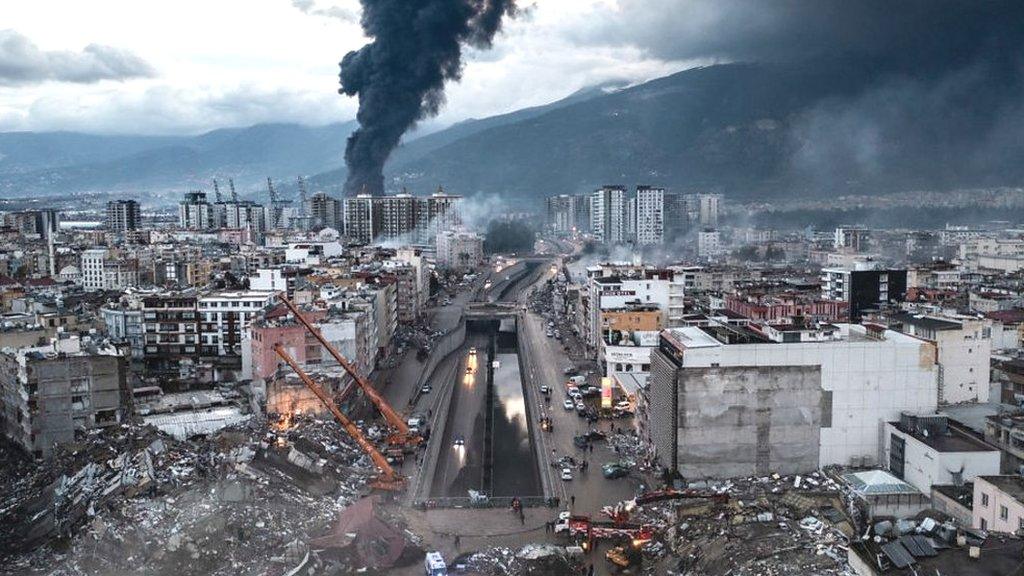Morocco: Powerful earthquake causes damage across the country
- Published
- comments
Morocco earthquake: Search and rescue mission after powerful quake
Rescue efforts are ongoing after a powerful earthquake struck central Morocco, a country in North Africa, on Friday night just after 11pm.
It caused huge damage in several areas, as well as destroying large areas of the historic centre of Marrakesh.
Thousands of people are thought to have been killed or injured.
The king of Morocco, King Mohammed VI has declared three days of national mourning.
Help is focused on remote areas where it's feared many people could be trapped.
Morocco has also received aid from other countries in the form of rescue teams and supplies, including from the UK, which has sent 60 search and rescue specialists.
The quake was also felt across the country of Morocco, and even in neighbouring Algeria, though officials there said it had not caused any damage or casualties.
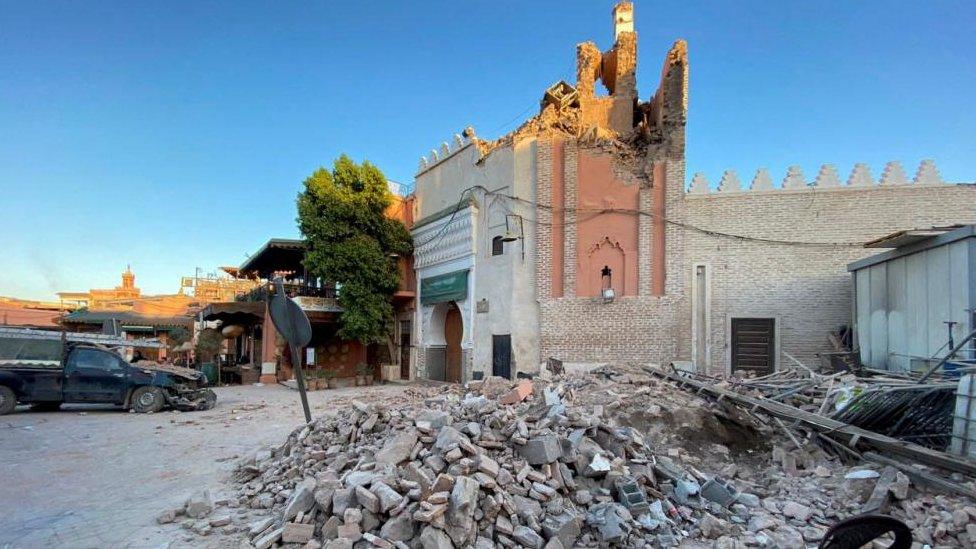
Damage to buildings such as this mosque became clear after sunrise on Saturday
In Marrakesh, damage is particularly bad in parts of the Medina, a Unesco World Heritage site.
Dust could also be seen surrounding the historic Kutubiyya mosque, a major tourist attraction near the old city's main square.
One resident has told of how power and phone lines were down for 10 minutes after the earthquake hit.
Earthquakes: what are they and what causes them? (2018)
Magnitude is the size of the earthquake, and this is expressed in numbers. For example, a magnitude 5.3 is a moderate earthquake, and a 6.3 is a strong earthquake.
The earthquake has been given a magnitude 6.8.
The quake's epicentre in a remote area of the High Atlas Mountains was relatively shallow - but tremors were also reportedly felt a far distance away.
What is the UK and other countries doing to help?
The Moroccan government says it has accepted aid from four countries so far - Britain, Spain, Qatar and the United Arab Emirates (UAE).
France, the US and some other countries say they are also ready to help.
Prime Minister Rishi Sunak has said: "My thoughts are with everyone affected by the terrible earthquake in Morocco.
In a post on X, formerly known as Twitter, he said: "The UK stands ready to support our Moroccan friends."
As part of the efforts to help following the earthquake, the UK has sent 60 search and rescue specialists, four trained search dogs and a small medical team to Morocco.
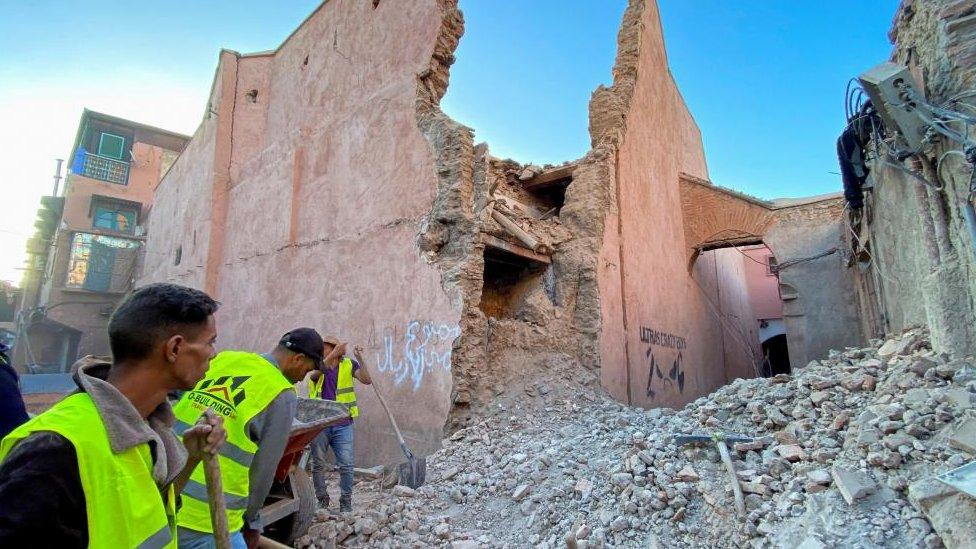
People work next to damaged building in Marrakesh on Saturday morning following the earthquake
The British kit includes seismic listening devices. designed to detect different sounds from survivors trapped under wreckages, and concrete cutting and breaking tools for rescuing people trapped in rubble.
Spain has sent 86 specialist rescuers in two teams, with four sniffer dogs each.
Several planes have also taken off from Qatar carrying rescue teams and emergency aid.
How have people visiting the country been affected?
Morocco is a country where many people from the UK go on holiday.
Clara Bennett, 21, a student from Hampshire was there with her parents and brother and has spoken of her shock when she first felt the signs of the earthquake.
She told BBC News: "I was just brushing my teeth and the whole floor shook."
Luckily, the house they were staying in was not damaged, but said when they came out onto the street "buildings had collapsed around us".
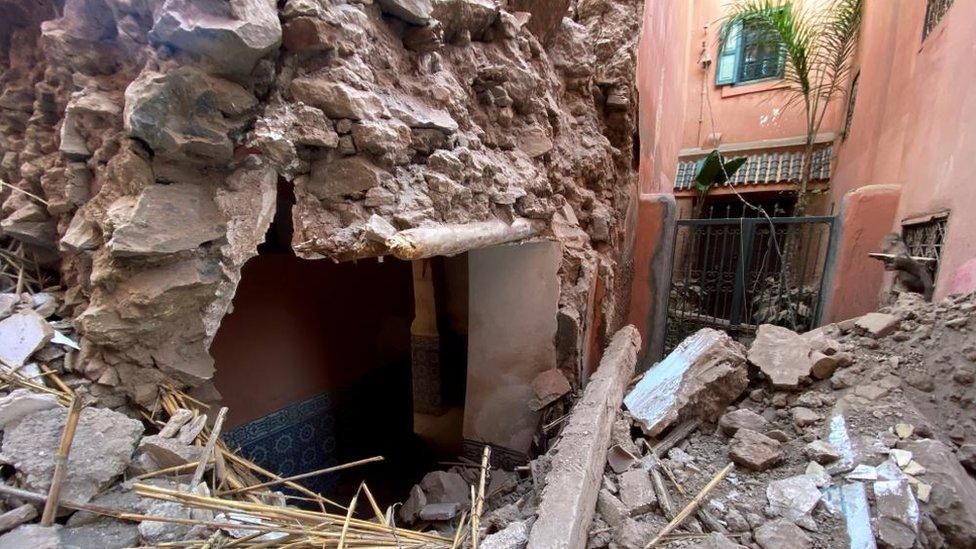
The quake's epicentre was less than 50 miles from the city of Marrakesh
She added: "There was a great sense of community, people carrying disabled people, handing out water and food."
But one difficulty she had faced was how to get home. She said: "We've tried to get flights out, but everything is fully booked. We'd like to know what to do next and what help is available."
British Airways said it had changed the type of plane used on its route to Marrakesh, should stranded UK tourists need to get home in an emergency.
The airline said that it has contacted all its customers in Morocco to check they are safe, adding: "We are continuing to monitor the situation closely, and customers due to travel to or from Marrakesh in the next two weeks can change their dates free of charge if they wish".
- Published6 February 2023
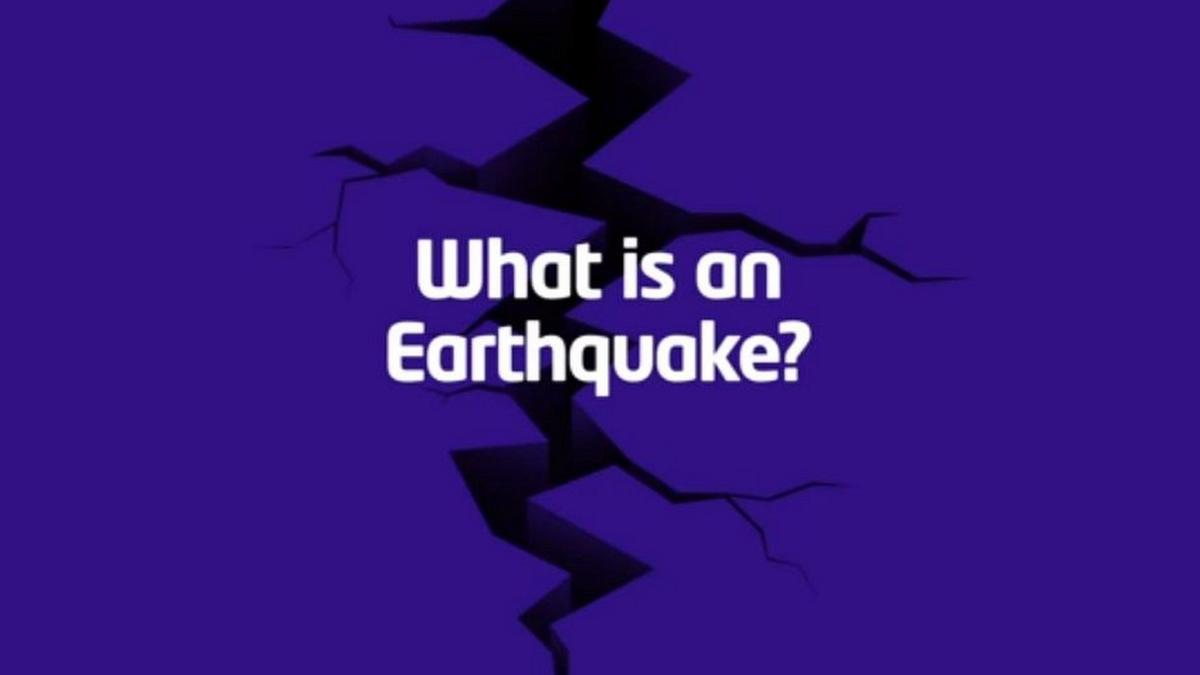
- Published10 February 2023
